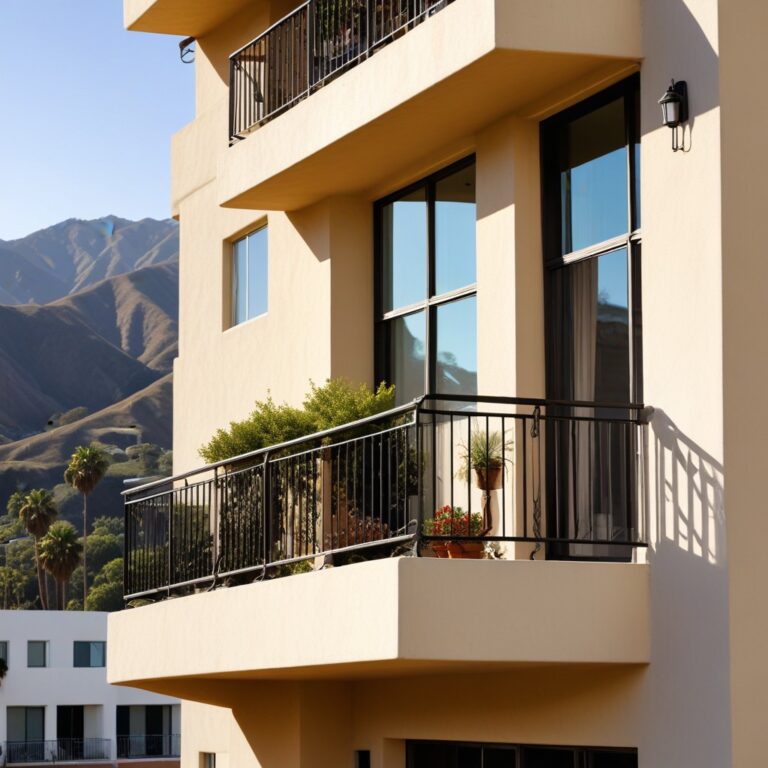How SB-326 & SB-721 Balcony Inspections Protect Your Property?

Table of Contents
SB-326 & SB-721 Balcony Inspections
What to Look for in an SB-326 & SB-721 Partner?
Case Study: When an Inspection Made All the Difference
FAQ Section: Top Questions & Answers
When you hear “mandatory inspections” your first thought probably isn’t warm and fuzzy. Those California balcony laws, SB-326 and SB-721, can feel like just one more thing to budget for and stress about. But here’s a different way to look at it: these laws are an investment in protecting your property on multiple levels.
SB-326 & SB-721 Balcony Inspections: It’s Not Just About Preventing Accidents
While the primary goal of California’s balcony inspection laws (SB-326 and SB-721) is to prevent injuries and fatalities, the benefits extend far beyond that crucial aspect. Proactive inspections protect your property value and peace of mind in several key ways:
Lawsuits are an unfortunate reality for property owners. In the event of a balcony-related incident, detailed SB-326/SB-721 compliant inspection reports are your proof that you took responsible steps to ensure safety.
Feeling safe in their homes is essential for residents. Regular balcony inspections contribute to a sense of security, which can lead to higher tenant retention and a more positive reputation for your property. Think of SB-326 and SB-721 inspections as preventative healthcare for your balconies. Catching small leaks, signs of rot, or other issues early allows for less disruptive and less expensive repairs in the long run.
Insurance companies analyze risk. By demonstrating a commitment to balcony safety and compliance, you may help mitigate potential premium increases that could come as balcony claim data accumulates statewide.
Contact DrBalcony for a professional inspection!
Ensure the safety of your balcony and living space with DrBalcony – We’re a Tech Engineering firm that specializes in California SB326 & SB721 balcony inspections. Over 300+ completed projects in California.
Request A Free EstimateClick To Call
“But My Balconies Are New!”
It’s understandable to assume newly constructed balconies are problem-free. However, even recent builds require inspections under California’s SB-326 and SB-721 laws. Here’s why:
- Unfortunately, rushed timelines, improper installation (especially with waterproofing elements), and other construction errors can occur in any building, regardless of age. Inspections catch these issues before they have time to become major problems.
- Wood balconies, a common material, need special attention in our state’s varied climates. Inspections ensure that moisture isn’t seeping in where it shouldn’t, leading to hidden rot.
- SB-326 & SB-721 inspections aren’t just a visual check. Experienced inspectors examine the crucial supporting structures – beams, connections, etc. Problems there can put a balcony at risk, even if the visible surface looks perfectly fine.

What to Look for in an SB-326 & SB-721 Partner?
Choosing the right balcony inspection company isn’t just about ticking a compliance box. The right partner makes the entire process smoother and helps ensure your balconies are truly safe. Here’s what matters:
- Reports that Go Beyond Checklists: A basic form won’t help you much. Look for companies that provide detailed written reports, including photos, descriptions of any issues found, and clear prioritization of repairs (urgent vs. those that can wait).
- The Repair Connection: Does the company also offer balcony repair expertise? If problems are found, this saves you the hassle of sourcing qualified contractors, and ensures the fixes are done to the standards required for future compliance.
- Proactive, Not Just Reactive: Does the company track potential changes to SB-326 and SB-721? Do they offer resources to help you easily understand the regulations? The best partners help you stay ahead of the curve.
- Clear Communication: Can you easily get questions answered throughout the process? Complex reports aren’t helpful if the company leaves you feeling confused. Responsiveness and the ability to explain things in plain English are key.
DrBalcony’s Pro Tip
Ask potential inspection companies about the specific qualifications of the inspectors they’ll send to your property. Licenses and relevant experience make a difference in the quality of the assessment.
Contact DrBalcony for a professional inspection!
Ensure the safety of your balcony and living space with DrBalcony – We’re a Tech Engineering firm that specializes in California SB326 & SB721 balcony inspections. Over 300+ completed projects in California.
Request A Free EstimateClick To Call
Case Study: When an Inspection Made All the Difference
Picture this: a beautiful apartment complex in a coastal California city, popular with young professionals, overlooking the ocean. The modern balconies were a major selling point. Only a few years after construction, the property manager felt confident about balcony safety…until the first round of SB-326 mandated inspections.
Dr. Balcony’s experienced inspector didn’t find any dramatic, about-to-collapse issues. However, on several ocean-facing balconies, he noticed sealant around the railings was starting to fail due to the harsh salt-air environment. This seemed minor, but a closer SB-326 compliant inspection revealed moisture was seeping into the wood of the support structure. Left unaddressed for a few more years, this would have turned into serious rot, potentially leading to a costly and dangerous situation.
Because the problem was caught early:
- Repairs were localized and relatively inexpensive, ensuring long-term budget stability. No need to entirely rebuild balconies thanks to California’s proactive balcony inspection laws.
- Residents faced minimal disruption, as the work was completed quickly. SB-326 compliance doesn’t have to mean major tenant inconvenience.
- The property manager proved proactive safety compliance (SB-326, SB-721), avoiding potential liability and maintaining a positive reputation.
Most importantly, a potential balcony hazard was eliminated before it could put anyone at risk. California’s balcony inspections aren’t just about the law; they’re about real-world safety and protecting your investment.
FAQ Section: Top Questions & Answers
My property is well-maintained. Do I really need SB-326/SB-721 inspections?
YES! Even with excellent maintenance, hidden issues can develop due to construction errors, material flaws, or severe weather exposure. Inspections are about ensuring those don’t turn into major problems.
Our balconies were inspected a few years ago – isn’t that enough?
Unfortunately, no. California laws mandate inspections on a set schedule, often every 6 years. Deterioration can happen quickly, making regular assessments essential.
Can I use my regular handyman for the balcony inspection?
It’s not recommended. Unless they hold specific licenses (architect, structural engineer, etc.) their inspection won’t be considered valid for SB-326/SB-721 compliance.
What if the inspection uncovers major issues?
First, don’t panic! Early detection often means less extensive (and expensive) repairs are needed. Work with your inspector to prioritize fixes, and explore if they offer repair services for a streamlined solution.
I’m worried about the cost of inspections. Are there any resources to help?
Start by getting detailed quotes from multiple companies. Factor in that proactive inspections help you avoid even bigger costs down the line due to neglected problems. Some property management associations offer guidance on budgeting for balcony compliance.
